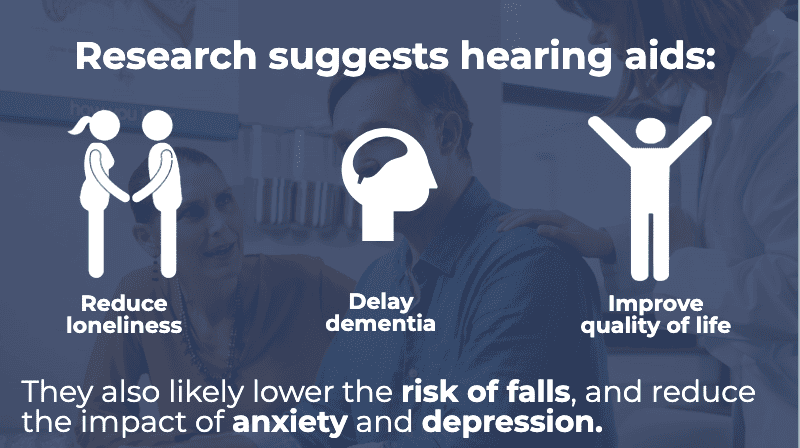I know I mentioned this to you last month, but it is worth saying again. We recently learned that Charlotte Eye, Ear, Nose & Throat Associates (CEENTA) stopped providing audiology services in their Salisbury location. We also heard last week that they are no longer in network with United Healthcare’s Medicare Advantage plan. So, if you have received hearing healthcare services or have been fitted with hearing devices at CEENTA, we are honored to take over your care so you don’t have to drive down to their Concord office.
Since CEENTA is a medical facility, they fit the same type of devices as we do. Most retail locations, on the other hand, have their hearing devices “locked” so you must return to another franchised location if a store closes their doors. That is not the case in this situation. I also perform diagnostic hearing evaluations at Pinnacle Ear Nose Throat & Allergy; Dr. Whitaker’s office does accept UHC. Please, know we are here to help.
October is audiology awareness month. Did you know poor hearing acuity may increase the risk of falls potentially reducing mobility, ability to perform daily activities and life expectancy?
Intuitively and from experience, we realize falling is a bad thing. From toddlers to elders, “be careful, don’t fall” is sound advice. At home, work and play, there are falling risks every day. While many consist of environmental factors such as slipping on a rug or tripping over an object, more should be mindful how our body’s vestibular system affects balance.
As a useful learning foundation, Safe Balance relies on normal functionality of three sensory inputs:
Vision, to see and navigate daily environments. Visual Motion perception has a correlation to risk of falls, in addition to visual acuity, contrast sensitivity, and stereo acuity. So if we have visual challenges or the lighting is poor, you have a great risk of falling.
Proprioception, often called kinesthesia, is how body position and self-movement relates to sensory neurons in our joints, tendons and muscles. This “6th sense” guides momentary reactions to our place in the world. When our feet don’t feel the ground well (neuropathy) or muscles are weak we are at greater risk for falling.
Vestibular System, providing a key sense of postural reflexes, eye movements and spatial orientation. Our complex inner ear structures and neural pathways perceive head movements and facilitate equilibrium.
As we age, our risk of falling rises. Data shows approximately 67% of emergency room visits for adults 65-85+ are for falls, considered a leading cause of injury-related deaths. Research indicates those with hearing challenges have poorer postural balance, an important factor in standing and walking stability. This may be caused by having fewer sensory cues in daily surroundings which help with spatial orientation and hazard avoidance. Further, the shared pathways between hearing- and balance-related structures can make it more difficult for older adults to focus reduced attention capacity in safely finding their way.
It is sensible for you and your loved ones to consistently get professional hearing tests. While many things in life surprise us, we know hearing your best may help reduce the risk of falls. To help keep life in balance, give Jamie or Diane a call to schedule a hearing evaluation. Be sure to visit our website: www.hearingsolutionsofnc.com and like us on Facebook. We don’t want you to fall! Dr. Mussler, Jane, Cheryl and I look forward to seeing you soon.

